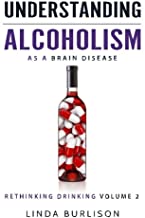Alcoholism
A chronic disease characterized by uncontrolled drinking and preoccupation with alcohol.
Alcoholism is the inability to control drinking due to both a physical and emotional dependence on alcohol.
Symptoms include a strong need or urge to use alcohol. Those with alcohol use disorder may have problems controlling their drinking, continue to use alcohol even when it causes problems, or have withdrawal symptoms when they rapidly decrease or stop drinking.
Treatment involves counseling, such as behavioral therapy, and medications that reduce the desire to drink. Some people need medical detoxification to stop drinking safely. Mutual support groups help people stop drinking, manage relapses and cope with necessary lifestyle changes.
Cluster Number:
Wiki Number: W0004
Diagnosis: Alcoholism
US Patients: 2016-5.1%
World Patients: 380Million
Sex Ratio: 2M-1F
Age Onset:
Brain Area:
Symptoms: Overstimulation of GABA receptors
Progression: increasing drinking
Causes: Cirrhosis of the liver, epilesy, cancer; dementia, women more likely
Medications: Acamprosate, naltrexone, opoids,
Therapies: Alcoholics Anonymous and 12-Step programs
Youtube Video: Warning Symptoms of Alcoholism
Amazon or Library Book:
Understanding Alcoholism as a Brain Disease
Click the book to link or order from Amazon.

